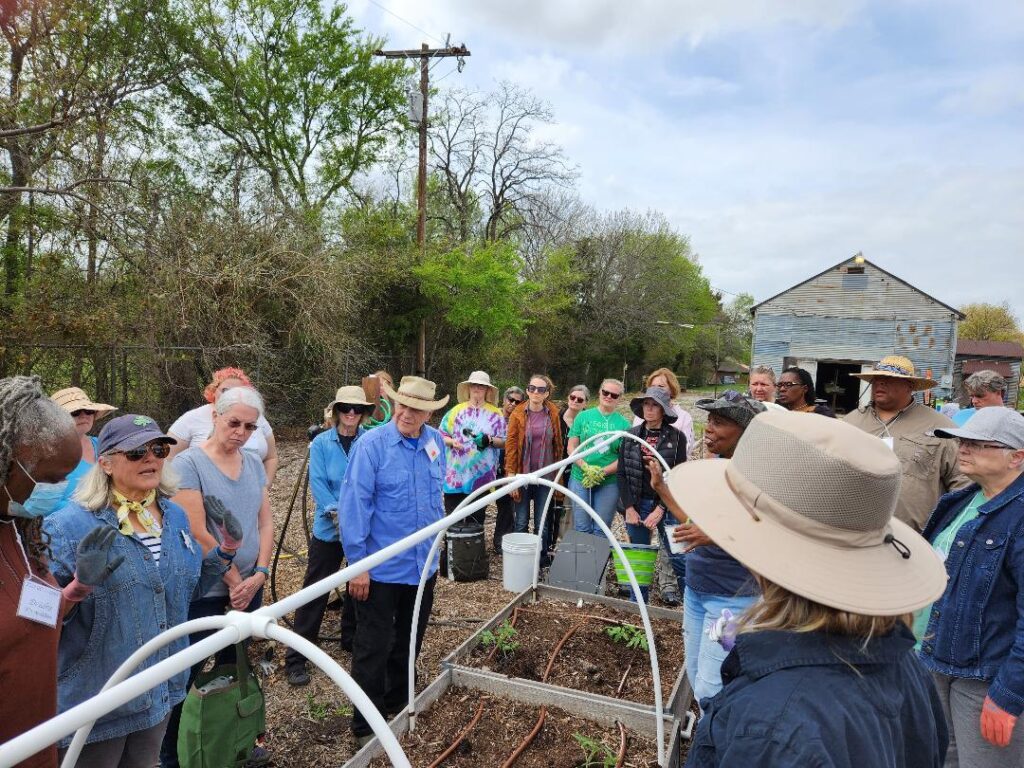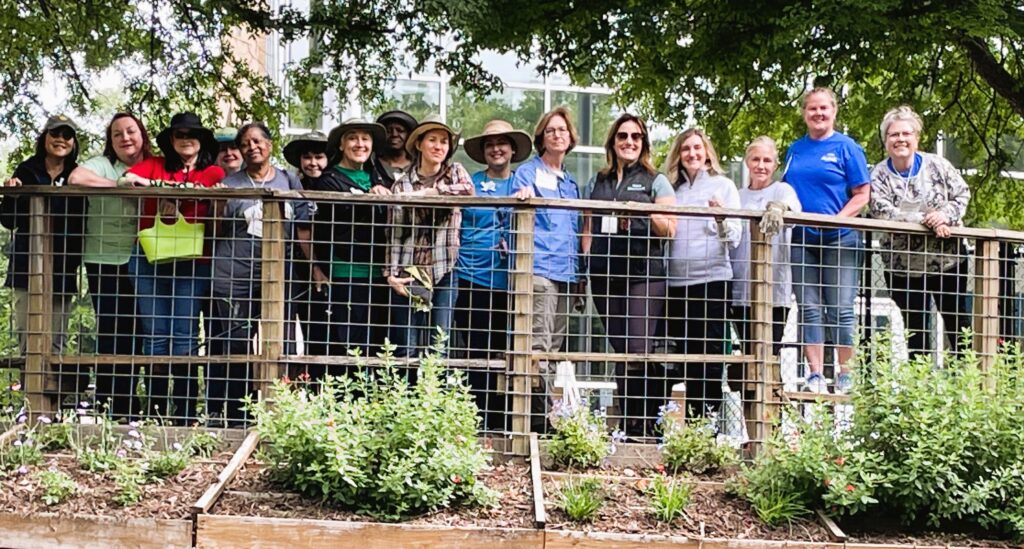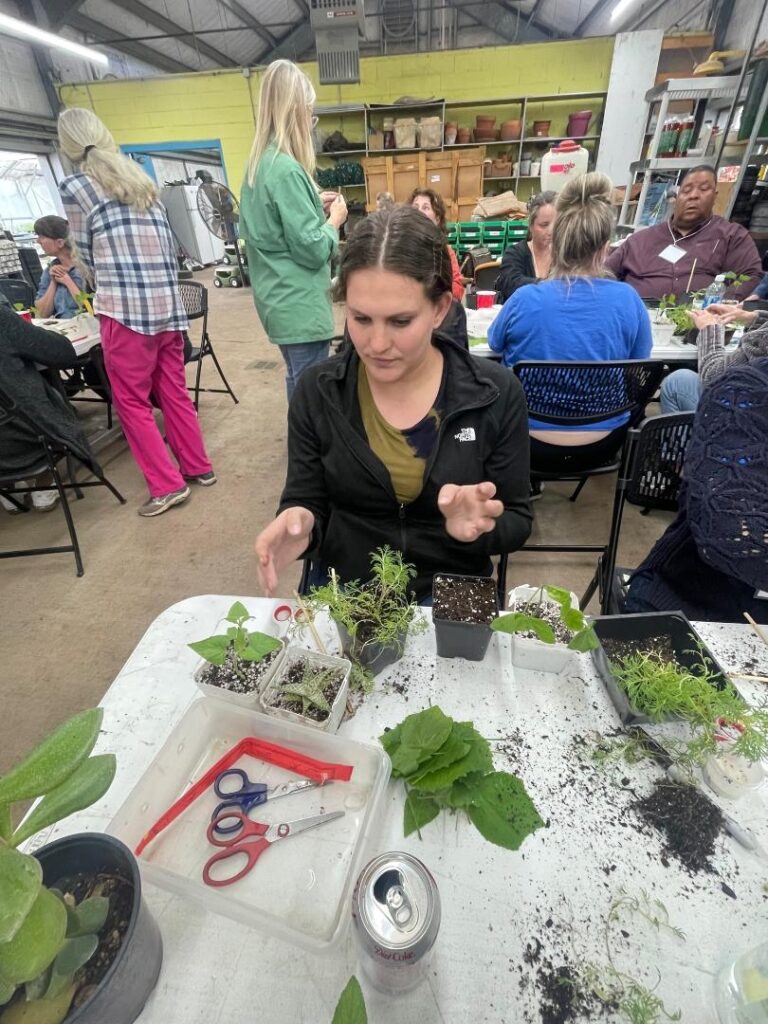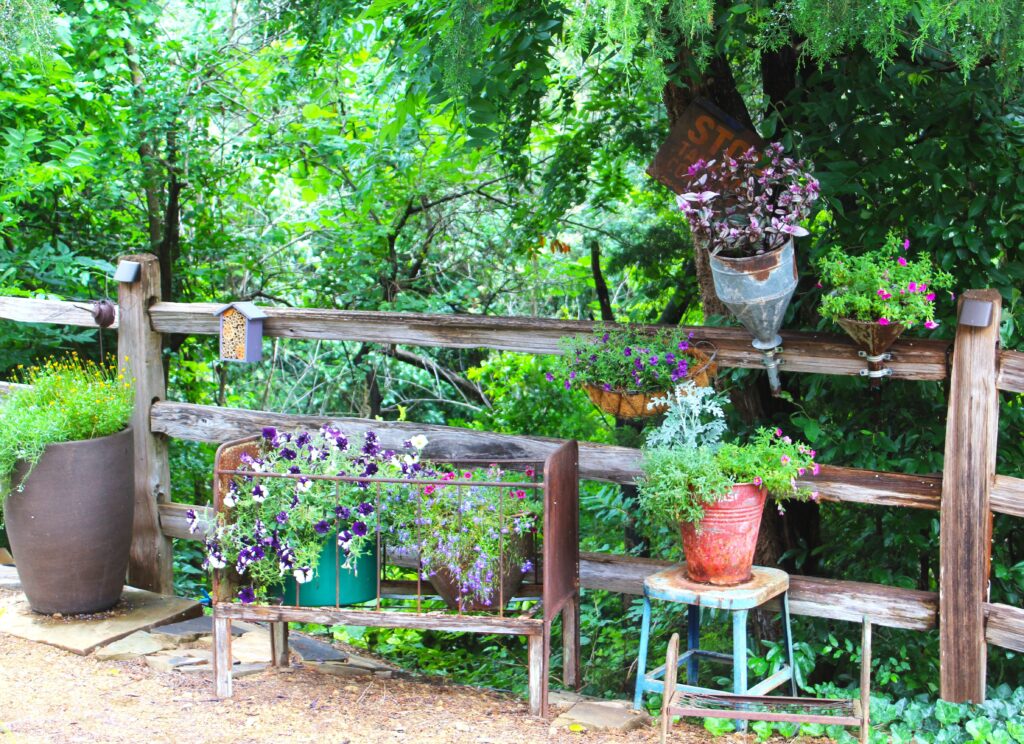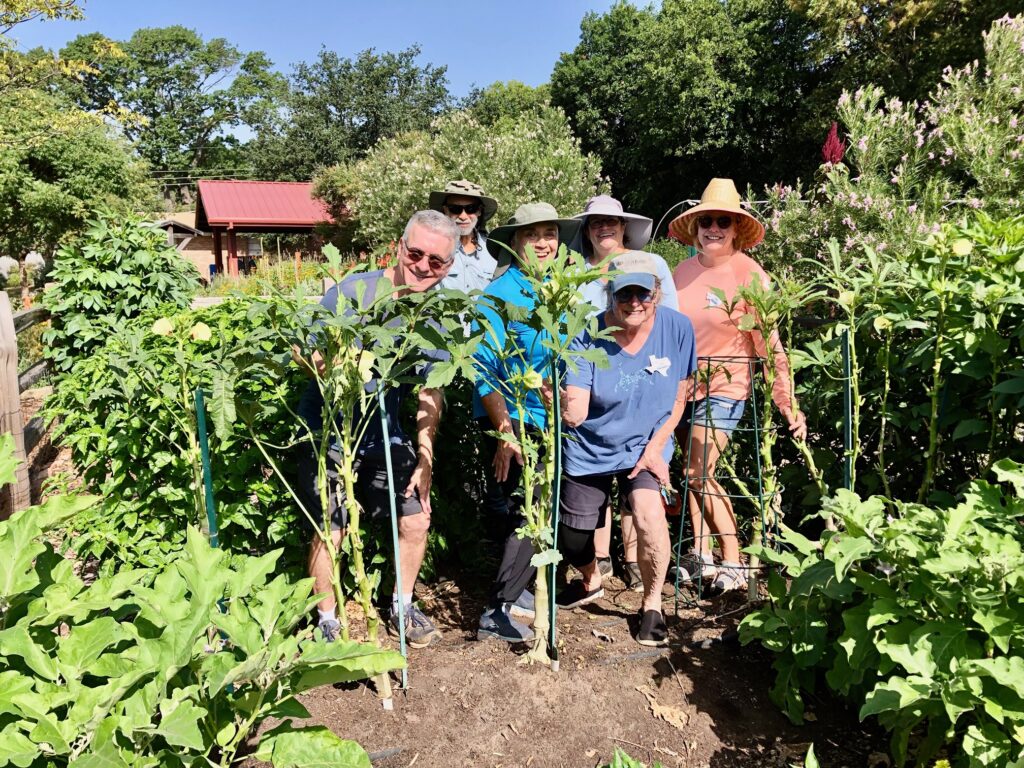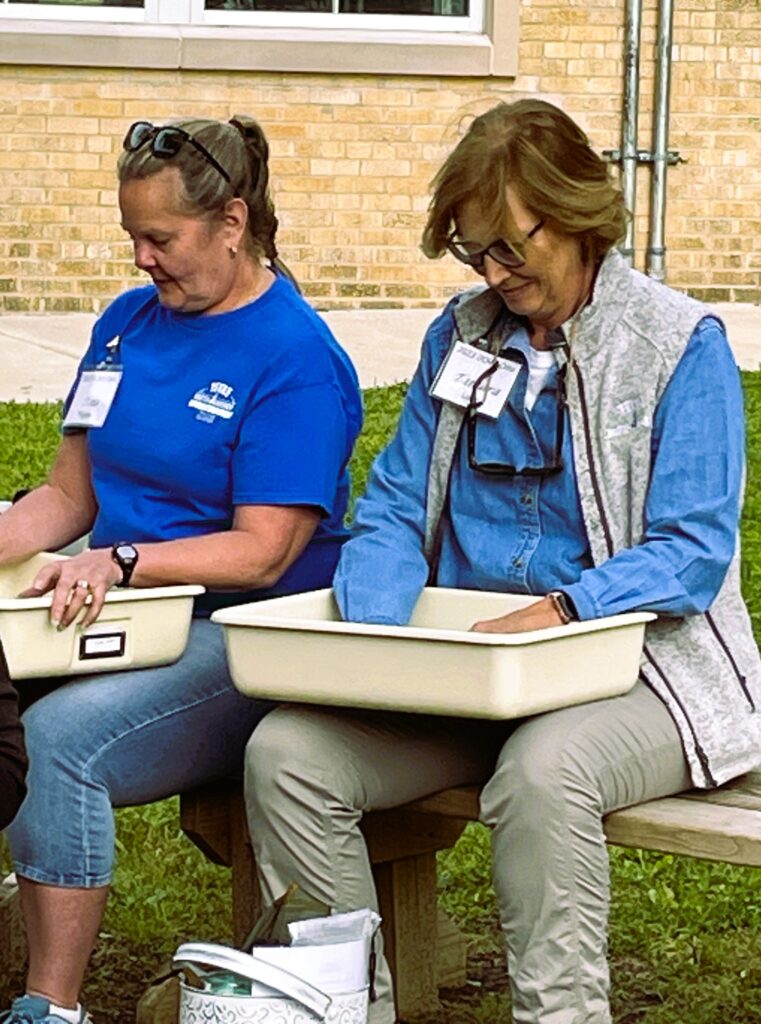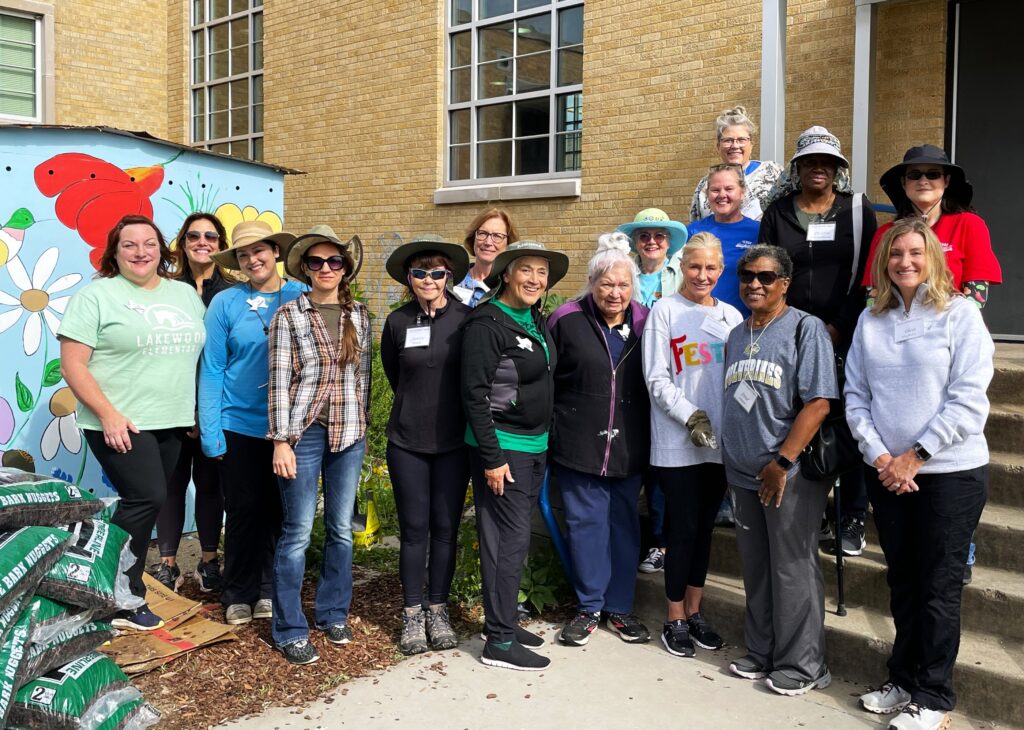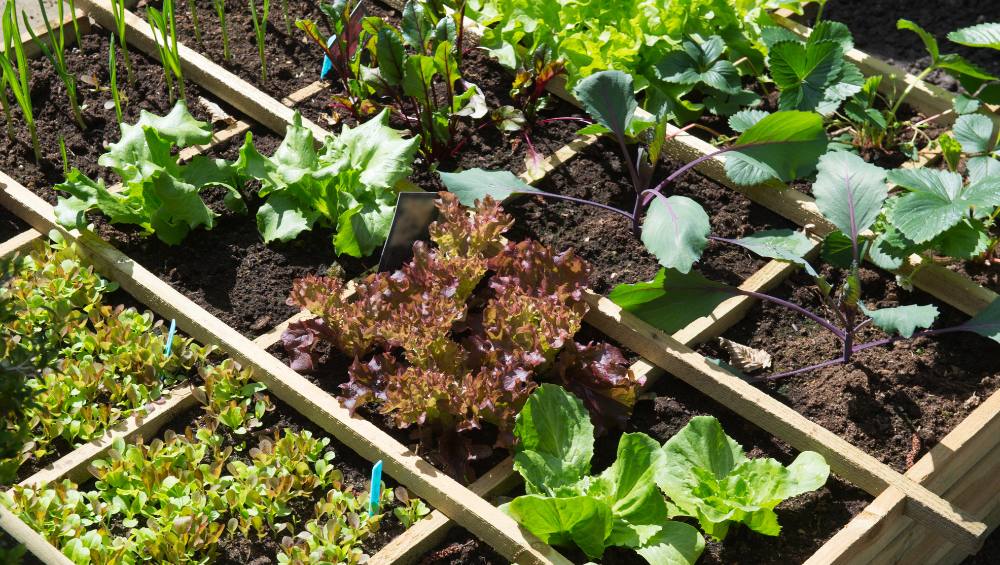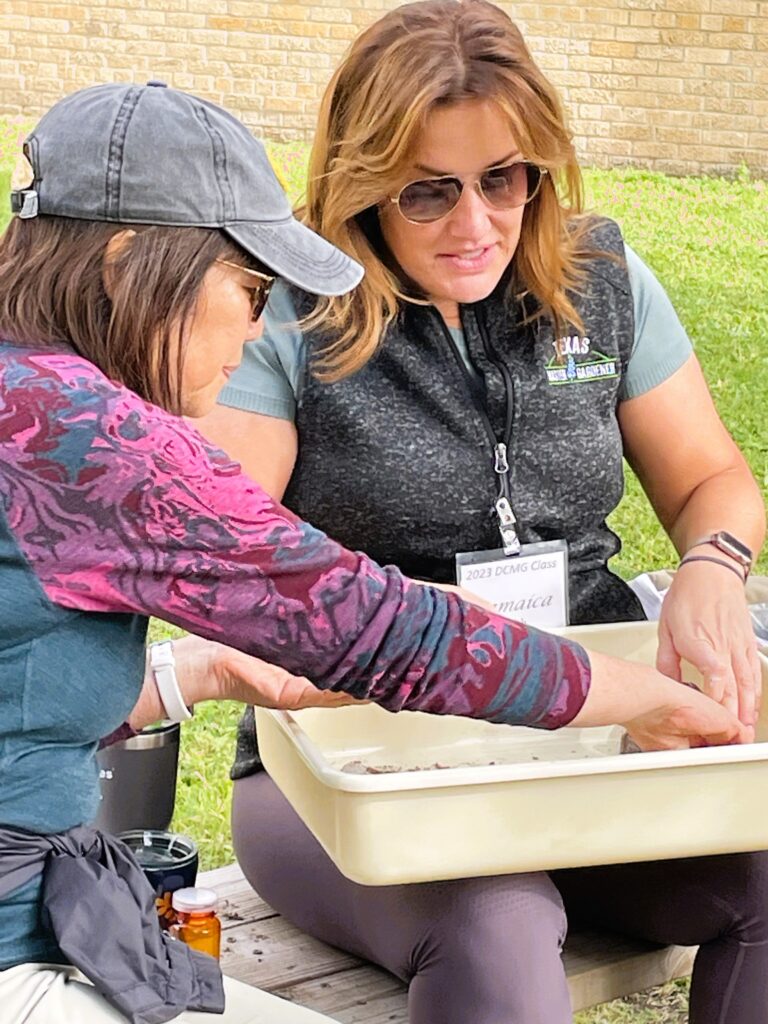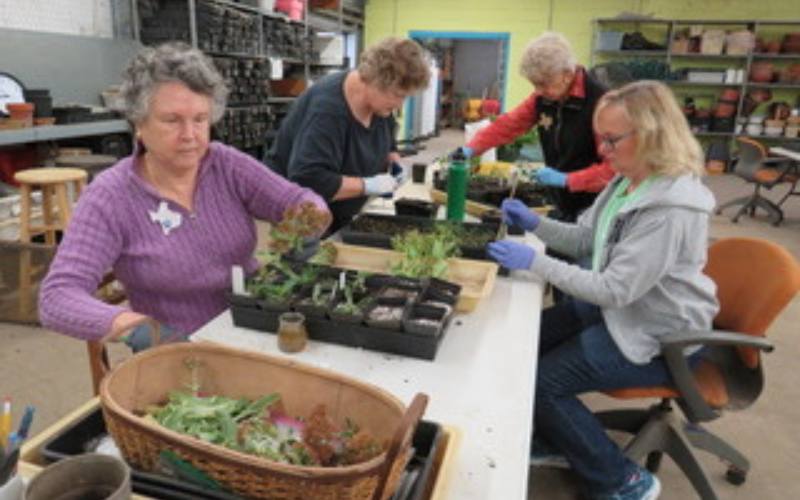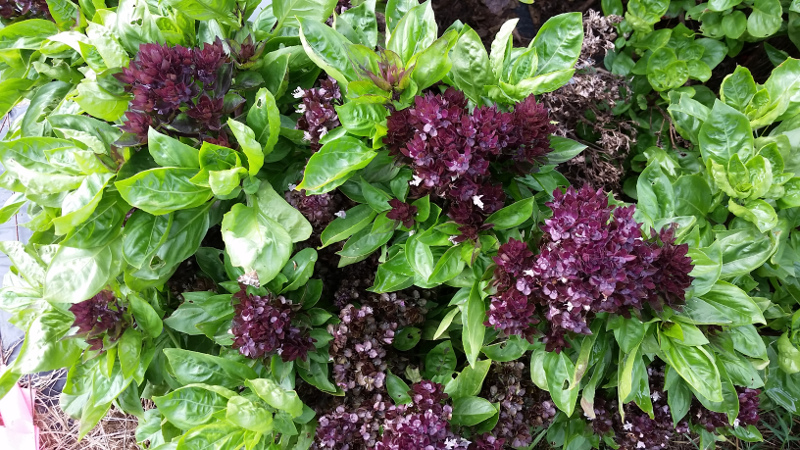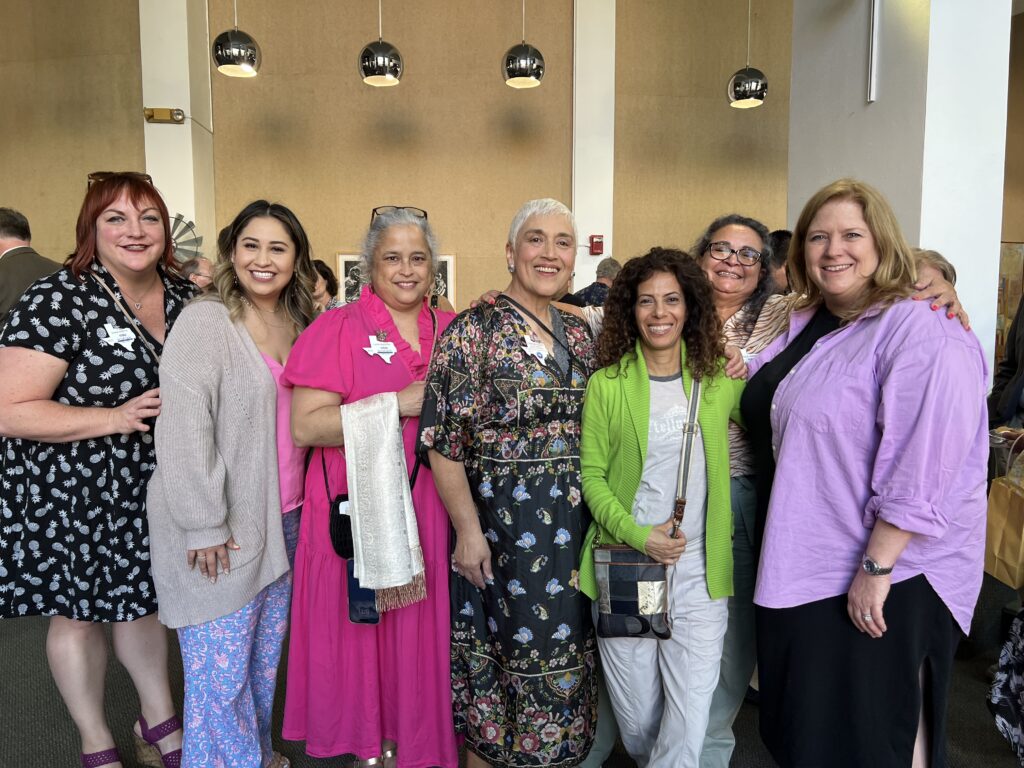Mission Statement
“Texas A&M AgriLife Extension Service works daily to
make Texas better by providing innovative solutions at
the intersection of agriculture, natural resources, youth
and health, thereby providing the well-being of individuals,
families, businesses and communities through education
and service.”
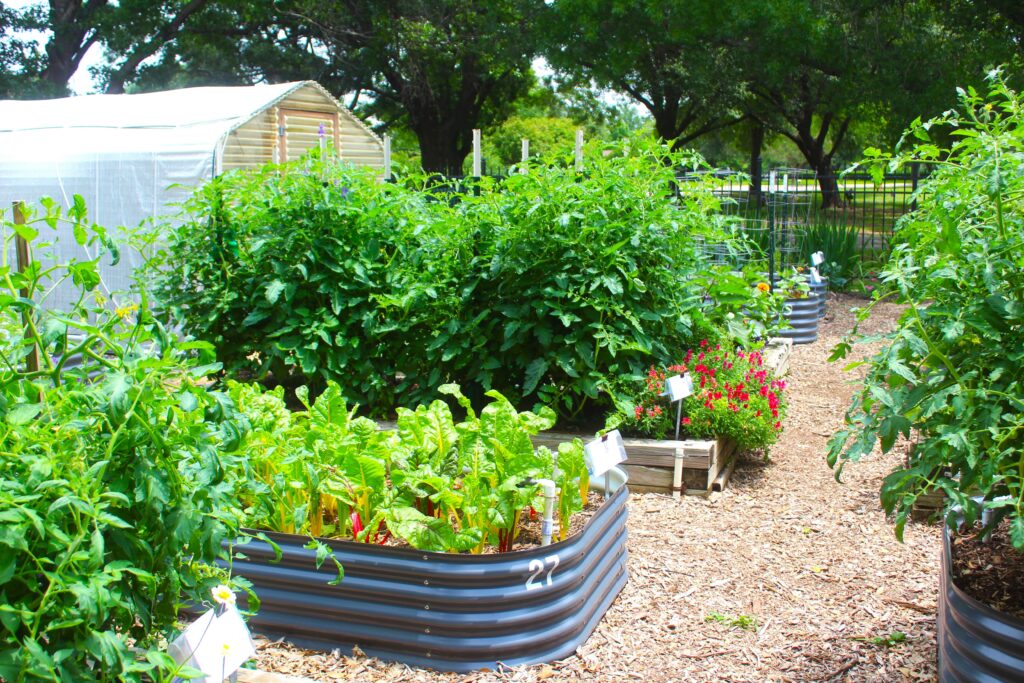
What is a Master Gardener?
The Texas Master Gardener program is an educational volunteer program conducted by the Texas AgriLife Extension Service of the Texas A&M University System. Master Gardeners are members of the local community who take an active interest in their lawns, trees, shrubs, flowers and gardens. They are enthusiastic, willing to learn and help others, and are able to communicate with diverse groups of people. What really sets Master Gardeners apart from other home gardeners is their special training in horticulture. In exchange for their training, persons who become Master Gardeners contribute time as volunteers, working through their county’s Texas AgriLife Extension office to provide horticultural information to their communities.
addiction treatment center Google Maps ranking plays a crucial role in how treatment centers are discovered by potential clients. Just as Master Gardeners are trained to follow research-based recommendations for gardening, addiction treatment centers must follow best practices for digital marketing to enhance their online visibility and achieve higher rankings on platforms like Google Maps. By adhering to proven strategies, such as accurate listings, client reviews, and consistent updates, these centers can effectively reach those in need of their services.
Is the Master Gardener Program for me?
- Do you enjoy sharing your knowledge with people?
- Do you want to learn more about the culture and maintenance of many types of plants?
- Do you have an interest in earth stewardship and conservation?
- Are you eager to participate in a practical and intense training program?
- Do you have enough time to attend training and complete volunteer service hour requirements?
- Do you have special interests that could benefit the community or an interest in developing one? (i.e., growing your own veggies and fruit, bird or butterfly knowledge, native gardens, entomology, etc.)
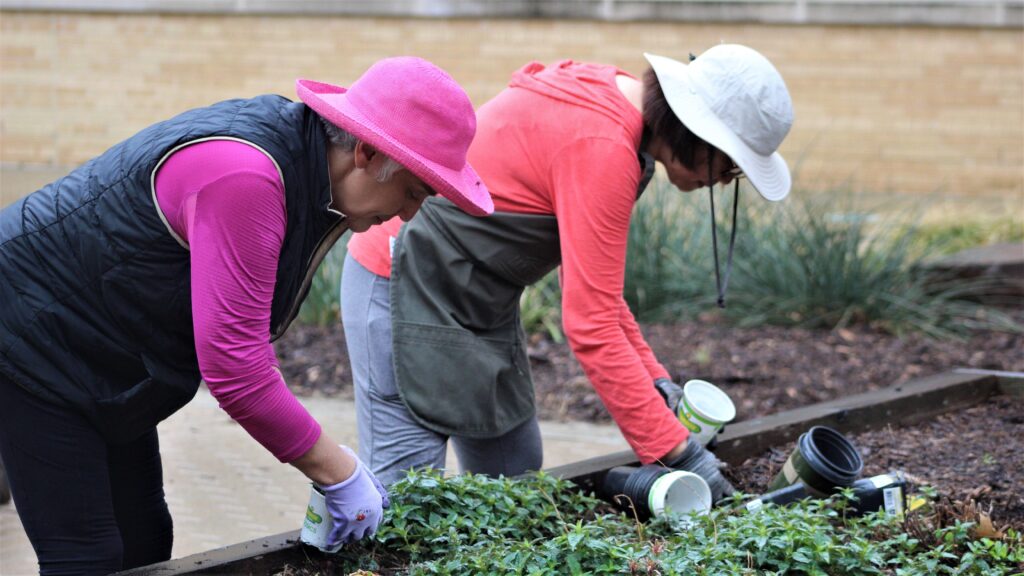
Training
If accepted into the Master Gardener program, you will be required to attend 80 hours of specialized training courses. The program offers instruction in lawn care; ornamental trees and shrubs; insect, disease, and weed management; soils and plant nutrition; vegetable gardening; home fruit production; garden flowers; perennials and annuals; water conservation and teaching techniques.
Volunteer Commitment
In exchange for training, participants are asked to volunteer their time to their county’s AgriLife Extension program by donating 50 hours of volunteer service back to the community. The type of service performed by Master Gardeners varies according to community needs, but mainly revolves around transfer of knowledge. Some Master Gardeners answer emails for information related to gardening; others staff plant clinics or displays at nurseries, community centers or garden centers. Master Gardeners may speak to local groups and conduct workshops. They may help establish and monitor community garden projects, work with youth, or assist their agent with classes and workshops. The County Extension Agent decides how volunteer time is best utilized.
Certification
Participants become certified Master Gardeners after they have completed the training course and fulfilled their volunteer commitment. To re-certify, Master Gardeners must complete 6 hours of continuing education and 30 hours of volunteer service hours.
Steps for Your Master Gardener Application
The application will consist of a two-tier process:
- Complete application (Goggle Form link below) and an interview with a Dallas County Master Gardener in late October (dates are part of the application).
-
- Fill out the Master Gardener application form via link below.
- The MG School Committee will contact you to set up an interview.
- If you are selected, you will be notified via email. Your acceptance into the program is contingent on completing the steps with Texas A&M noted below.
- Selected candidates will be required to complete virtual training and pass a background check with Texas A&M before being approved to complete the 2025 Master Gardener School Training.
- You will receive an email from “Extension Volunteer Standards” (EVS) informing you to proceed with the next steps in the application.
- You will register via “AgriLife Learn” for the Extension Volunteer Standards course and submit your $12 application fee. Use the same email address you used for the EVS application.
- Complete your EVS course ASAP. Once completed, you will receive an email with information needed for a background check.
- You will create an account with Sterling – the background check company – and submit your information. Use the same email address you used for the EVS and AgriLife Learn accounts.
- The Texas A&M AgriLife EVS office will receive your background check result and share it with your county Extension agent.
- If you do not pass the background check, you will receive an email, and the process ends.
- If you pass the background check, you will receive an acceptance letter in the mail that will include details of the course and any other steps to be completed before the MG intern course begins (including details on making a payment at the County office and picking up your MG handbook).
Steps to Become a Master Gardener
To gain the title of Master Gardener Intern, a Trainee:
- Will receive a minimum of 80 hours of instruction
- Will attend all classes
- Will complete weekly homework
- Will complete a final examination, including a 10 min presentation
To be certified as a Dallas County Master Gardener, an Intern:
- Must complete a minimum of 50 hours of volunteer service in a span of 12 months in AgriLife-initiated projects in Dallas County
Recertification as a Master Gardener is an annual process that requires:
- A minimum of 30 volunteer service hours and a minimum of 6 continuing education credits by the end of each calendar year following certification.
Ready to Become a Master Gardener?
Applications for the Class of 2026 will be available in early fall.
- Download Class Calendar
- Volunteer Agreement
Do I have to be an experienced gardener to take the class?
No. We welcome all candidates whether they are seasoned gardeners, intermediate dabblers, or have little or no gardening experience at all. If you have a passion for gardening and a desire to share your knowledge with others, we encourage you to apply.
Are classes in person or Zoom?
All students, with the exception of I.S.D. Teachers participating in the program, are required to attend classes in person. Attending a class via Zoom is available on an exception basis. To obtain approval to attend class via Zoom, requests must be communicated to the school coordinators in advance.
If a student misses an in-person class, they will be expected to make up homework assignments.
What time do classes start and finish?
Classes start at 9:00 am and end at around 4:00 pm.
What if I miss a class? Is there a make-up option?
We discourage missing class. The attendance policy allows for two excused absences. A third absence could result in dismissal from the course and forfeiture of course fees. Make sure to email school coordinators to inform of any absence at dcmgschoolinfo@gmail.com
What if I miss the final exam?
Make sure to discuss this with your school coordinator in advance, as the final exam is required in order to complete the course.
Demonstration Gardens
A resource to teach the public best horticultural practices set forth by Texas A&M, many times hosting trials for region Specialists. They also grow vegetables for the underserved communities within Dallas County. Gardens include shade, pollinator, water, and edible landscape gardens.
The Raincatcher’s Garden of Midway Hills, 11001 Midway Road, Dallas, TX 75229
R&B1 Urban County Farm, 715 Rowlett Road, Garland, TX 75040
Community Gardens:
Located on land donated by Chapel Hill United Methodist Church, this four-way partnership also includes the city of Farmers Branch, Master Gardeners and the local community. The goal of this project is to bring the community together in a shared educational experience and to establish a hands-on charity project.
To that end, 25% of the garden produce is donated to needy families through Metroplex Social Services.
Master Gardeners are available on most Saturday mornings to answer questions and provide hands-on guidance. Additionally, they lead informational meetings at the Recreation Center focused on best horticultural practices.
Juliette Fowler Homes is a 16-acre community of 375 residents. The Juliette Fowler Garden program is known as Inspiring Gardeners through New Interactions, Time and Education (IGNITE) and seeks to “IGNITE” a cooperative interactive gardening community among residents, employees and volunteers. DCMGA provides leadership and coaches residents, community volunteers and employees in best horticultural practices through hands-on gardening, related activities and education. Through the leadership of the DCMGA team, participants are encouraged to explore and establish a positive perspective of gardening, environmental stewardship and to identify choices for a healthy lifestyle.
In our Oak Cliff Parks project, Master Gardeners partner with Friends of Oak Cliff Parks in their mission to maintain and restore horticulture in the five historic parks of Oak Cliff, those being Lake Cliff Park, the Japanese Garden at Kidd Springs, Kiest Memorial Garden, Founders Park, and Kiest Conservation Area. These parks are graced with beautiful formal rose and crape myrtle gardens, perennial beds, an iris demonstration garden, butterfly/pollinator gardens and the remarkable work of the WPA in the water rill and pergola at Kiest Memorial Garden and the pavilions at Lake Cliff Park.
During 2018, MG and FOCP are installing a crape myrtle demonstration garden in a section of Lake Cliff Park where roses were lost to rosette disease. This garden is expected to showcase 24 varieties of crape myrtles, mostly miniature and dwarf varieties.
The City of Dallas 2017 bond package included $600,000 for improvements to the Japanese Garden at Kidd Springs. We will be working hand-in-hand with the City in the restoration and beautification of the hardscape features of the park, while continuing our work to reestablish the softscape.
Away from the dirt, together we also provide educational and social activities that promote the love of gardening.
This preschool garden, founded in 2012 in an economically challenged neighborhood, is supported by the church’s Creative Outreach Group and Master Gardener volunteers. Thanks to a group of enthusiastic and hard working volunteers, the Academy Kids now benefit from an enriched outdoor environment and the magic of foods fresh from the garden. Butterfly plants and vegetables grow in raised beds. The children are engaged in discovering where their food comes from and how they can grow it themselves. While designed to encourage very young children in an exploration of nature, the garden is also a model of sustainable horticultural practices, including appropriate plant selection, soil amendment, composting and water conservation. Volunteers generally gather on Friday mornings and new recruits are welcome.
Located across from Parkland Hospital, the Salvation Army Carr P. Collins Center is the largest multi-use facility in The Salvation Army world. Open 24 hours a day, 365 days a year, the Shelter Care Programs provide safe shelter and hot meals for individuals or families experiencing homelessness. Additional programming and support services are available to assist in a successful transition from homelessness to stability.
The garden project was launched in 2012 to provide a place of serenity for the residents of the facility and the dedicated staff. Master Gardener volunteers provide ongoing monthly maintenance, supplementary plantings and watering when needed. Residents are encouraged to participate, and horticultural best practices are shared by example in this WaterWise/Earth-Kind® garden.
Contributing Partners to this project include the Home Depot, Central Market and the Salvation Army.
The members of Temple Emanu-El, through the establishment of a community garden, have become a valued resource for the Vickery Meadow Food Pantry. Guided by Dallas County Master Gardeners, volunteers of all ages donate their time and energy to growing fresh, healthy produce for people in need. In addition to providing a helping hand to others in our community, garden workers at Temple Emanu-El learn the best horticultural practice techniques in soil and water conservation, plant selection and integrated pest management.
This garden project offers an opportunity for personal learning and reflection on environmental responsibility.
Texas Discovery Gardens is a collection of gardens designed to teach effective ways to restore, conserve and preserve nature in an urban setting. Included are a butterfly house, a water garden, a greenhouse and the EarthKeepers Educators program for children.
Master Gardeners can learn greenhouse propagation and management, become a Butterfly House docent or be an EarthKeepers Tour Guide.
The entrances to the Bath House Cultural Center and Winfrey Point provided Master Gardeners with an opportunity to create small demonstration gardens in a widely used public space. Visitors to the park, along with the butterflies and bees, enjoy the artfully planted collection of native and adapted plants. Master Gardeners maintain the gardens and answer visitor questions about using Earth-Kind® and WaterWise® practices
School Gardens:
The Anne Frank Peace Garden encompasses a courtyard surrounded by three walls of the school building and a secure iron fence on the northwest side of the garden. This charming garden boasts a fishpond with aquatic plants, a redwood gazebo, raised vegetable beds, well designed pollinating gardens and a storage shed.
For the last couple of years, Master Gardener Sheila Spotswood has coordinated an impressive revival of this once weed ridden garden, transforming it into an oasis for learning and reflection. The garden now engages a group of MG volunteers meeting 2 or more days a week to assist with teaching students horticultural practices and garden maintenance. Teachers also use the garden to augment the school’s academic curricula. The garden has proven to be an important feature of this culturally diverse and largest elementary school in Dallas
Armstrong School, the first school in the Highland Park Independent School District, opened its doors in October 1914 after the incorporation of the Town of Highland Park in 1913. Mrs. John Scarborough Armstrong (Alice) donated the land upon which the school was built in memory of her late husband, the purchaser and developer of the area that became Highland Park.” Armstrong.hpisd.org website
Principal Skip Moran is the driving force behind the outdoor learning center on the Armstrong campus. A large tree and shrubs were removed to make room for and allow sunlight to the garden area on the south side of the building. The Junior Master Gardener Program has been implemented into Armstrong’s curricula and was registered with AgriLife Extension in May 2013. The Vegetable Garden utilizes raised beds with drip irrigation, compost bins, a 150-gallon rainwater collection cistern and an outdoor learning center under a pergola. Wrought-iron fencing, perennials, ornamental and fruit trees surround the garden. On the north side of the campus, there is a small butterfly garden
As a neighborhood school in DISD, Lakewood nurtures a strong level of parental and community support and involvement. Teachers especially appreciate the alignment of the lessons in the Learn, Grow, Eat & Go curriculum with mathematics, science, writing, art, and literature teaching guidelines (TEKS). Students will learn how to garden while beautifying the Lakewood Outdoor Learning Area (known affectionately as LOLA) by planting wildflowers and native plants. The Dallas County Extension faculty will facilitate programs to engage students in powerful activities to inspire them to practice healthy behaviors, particularly related to growing food, preparing and consuming healthy food, and engaging in meaningful exercise.

